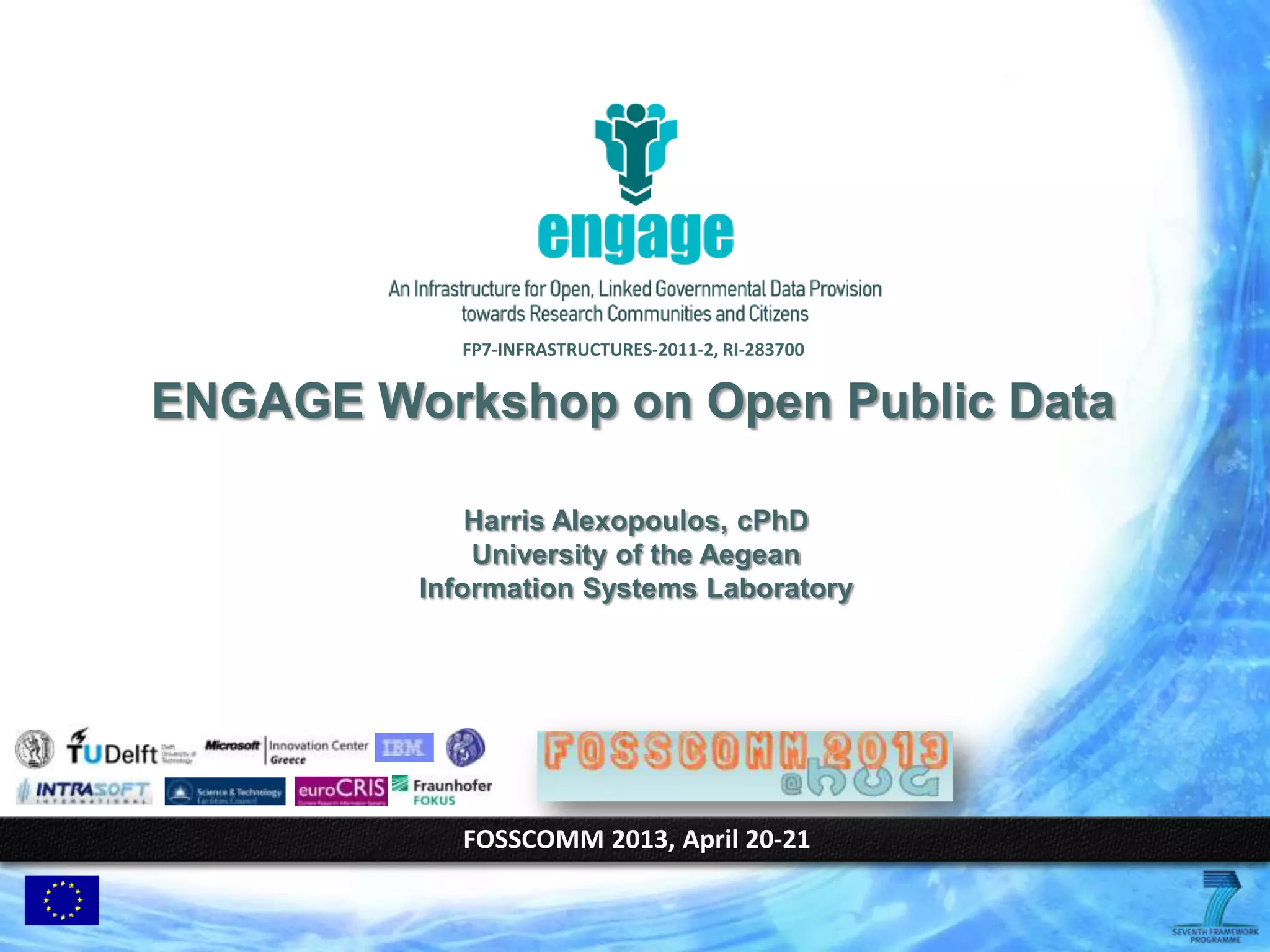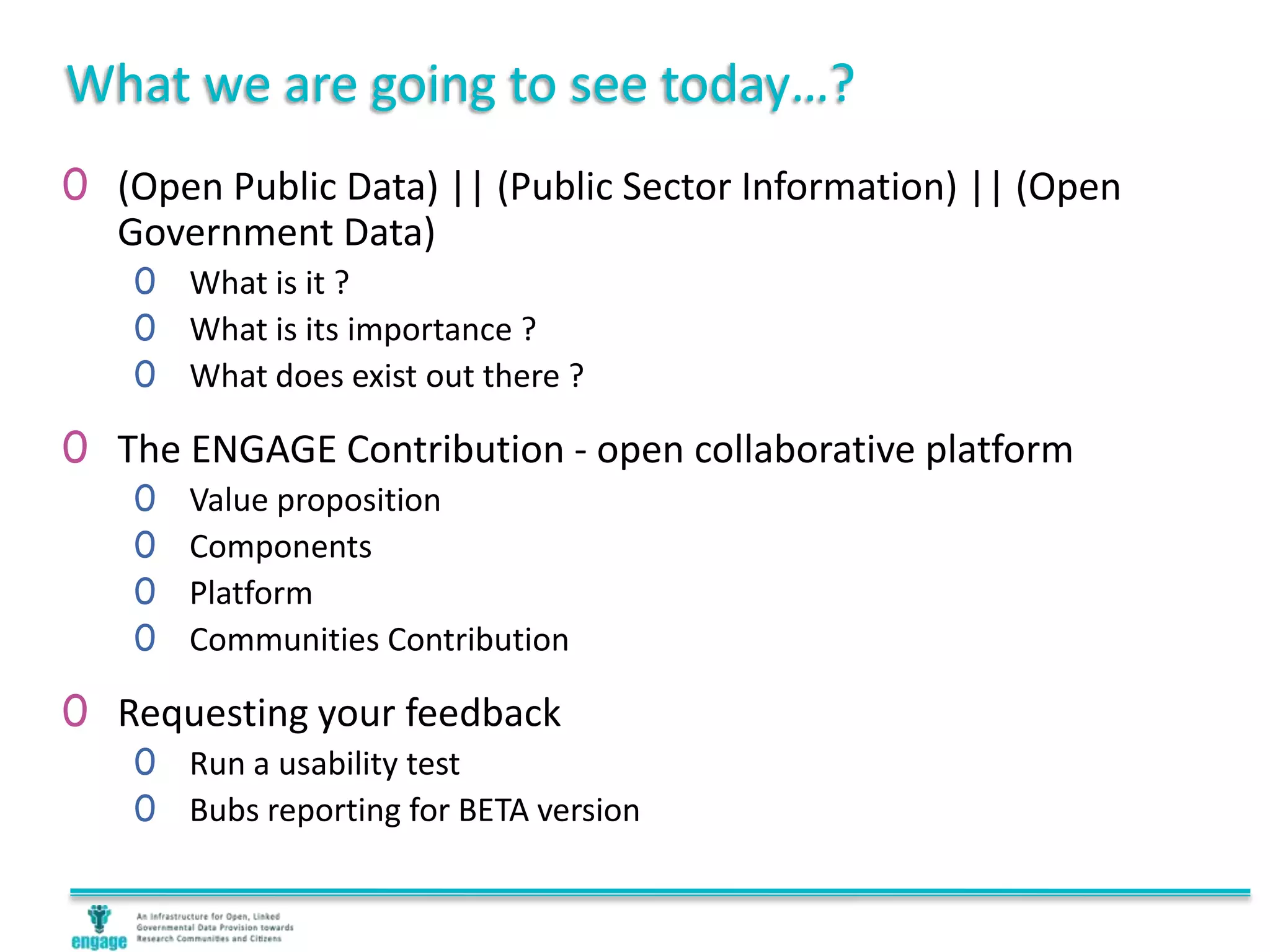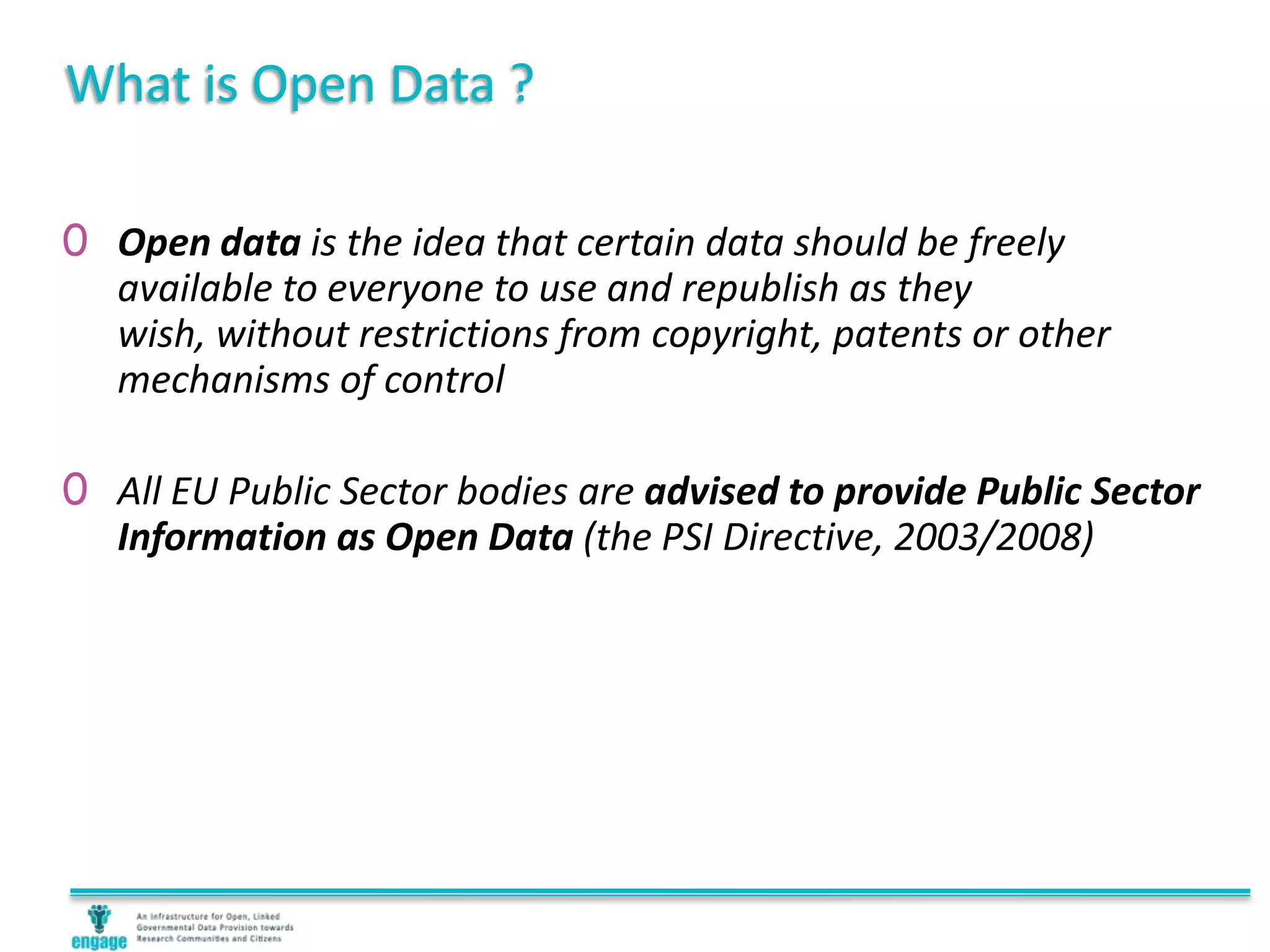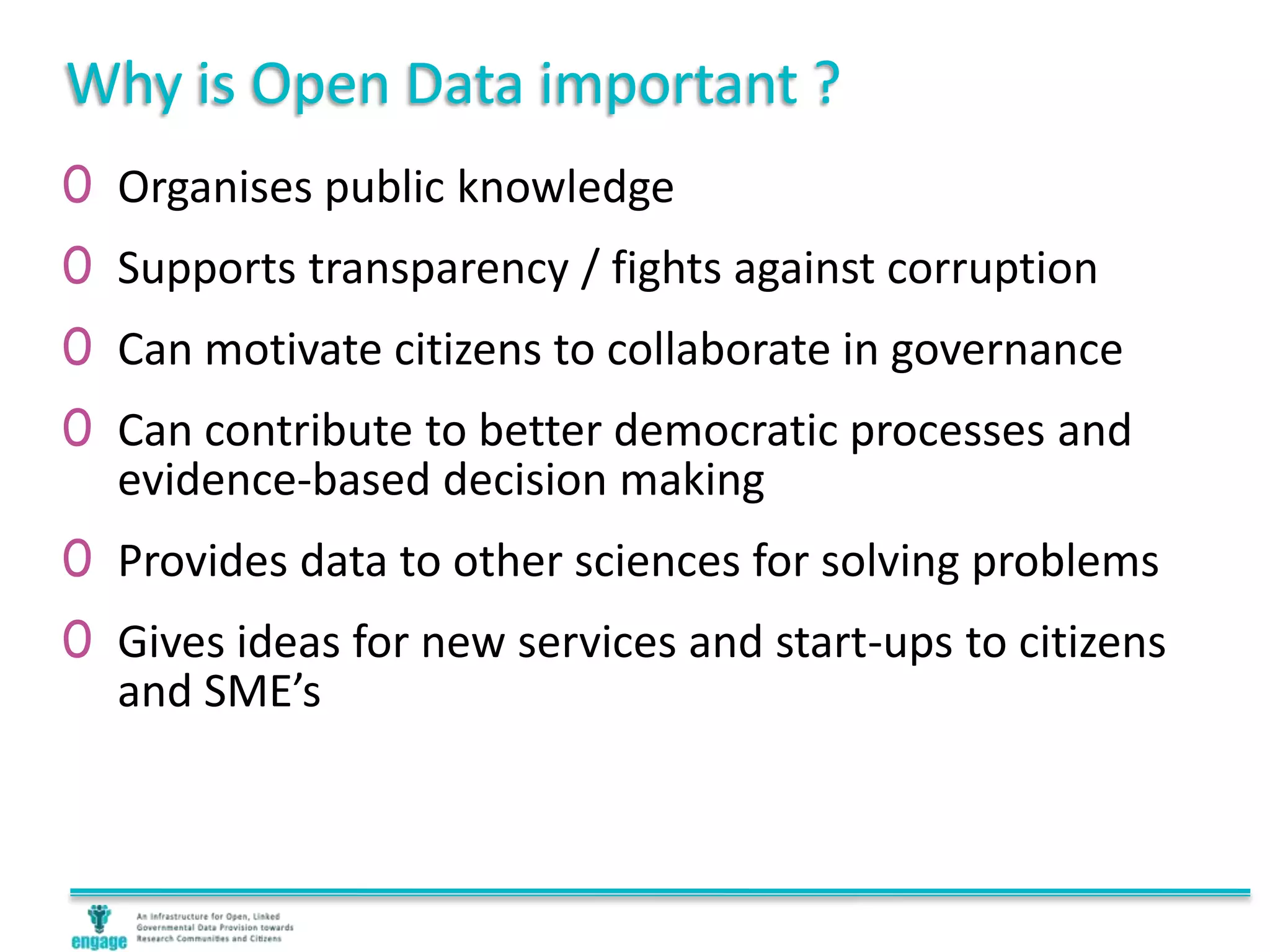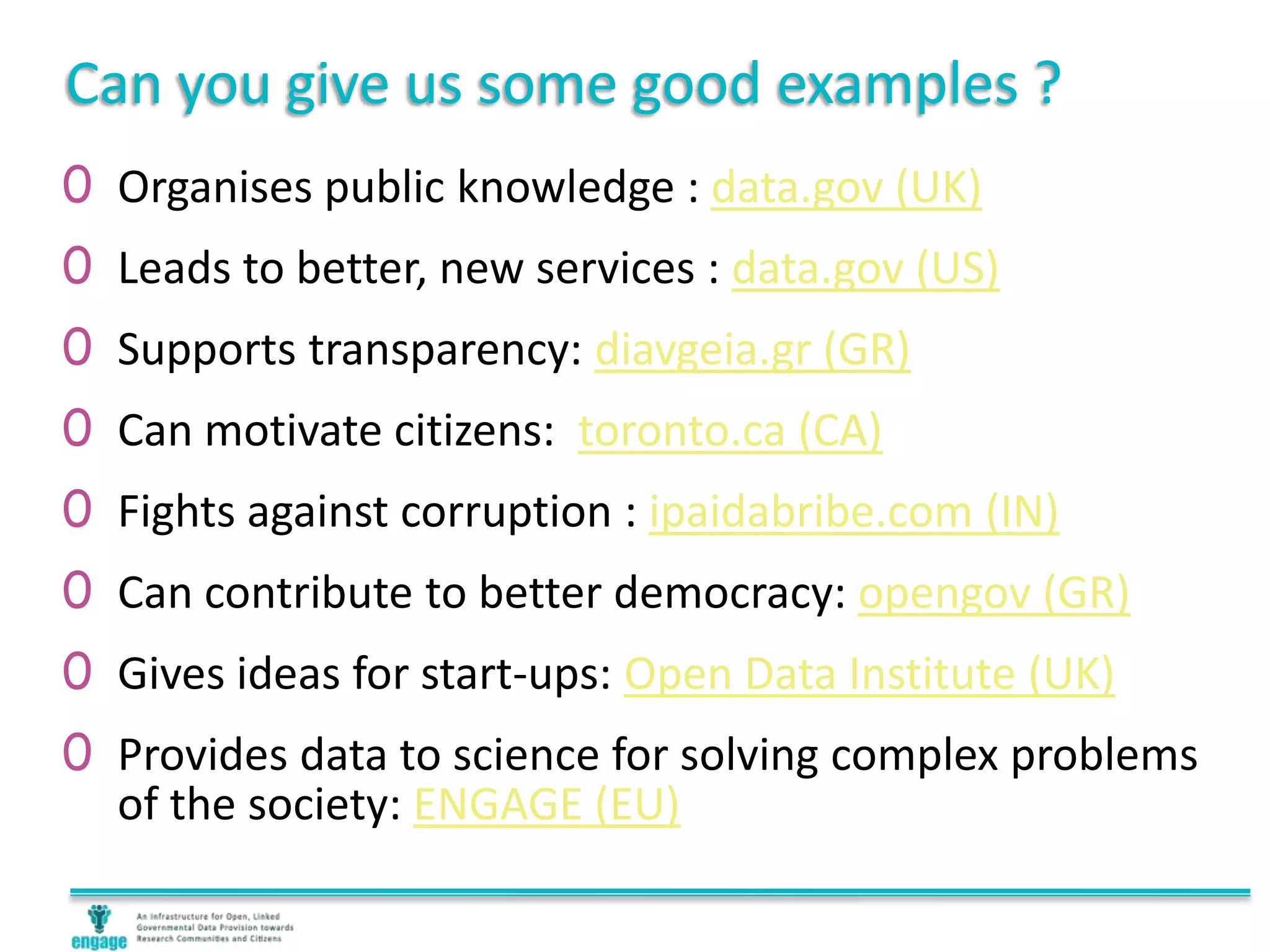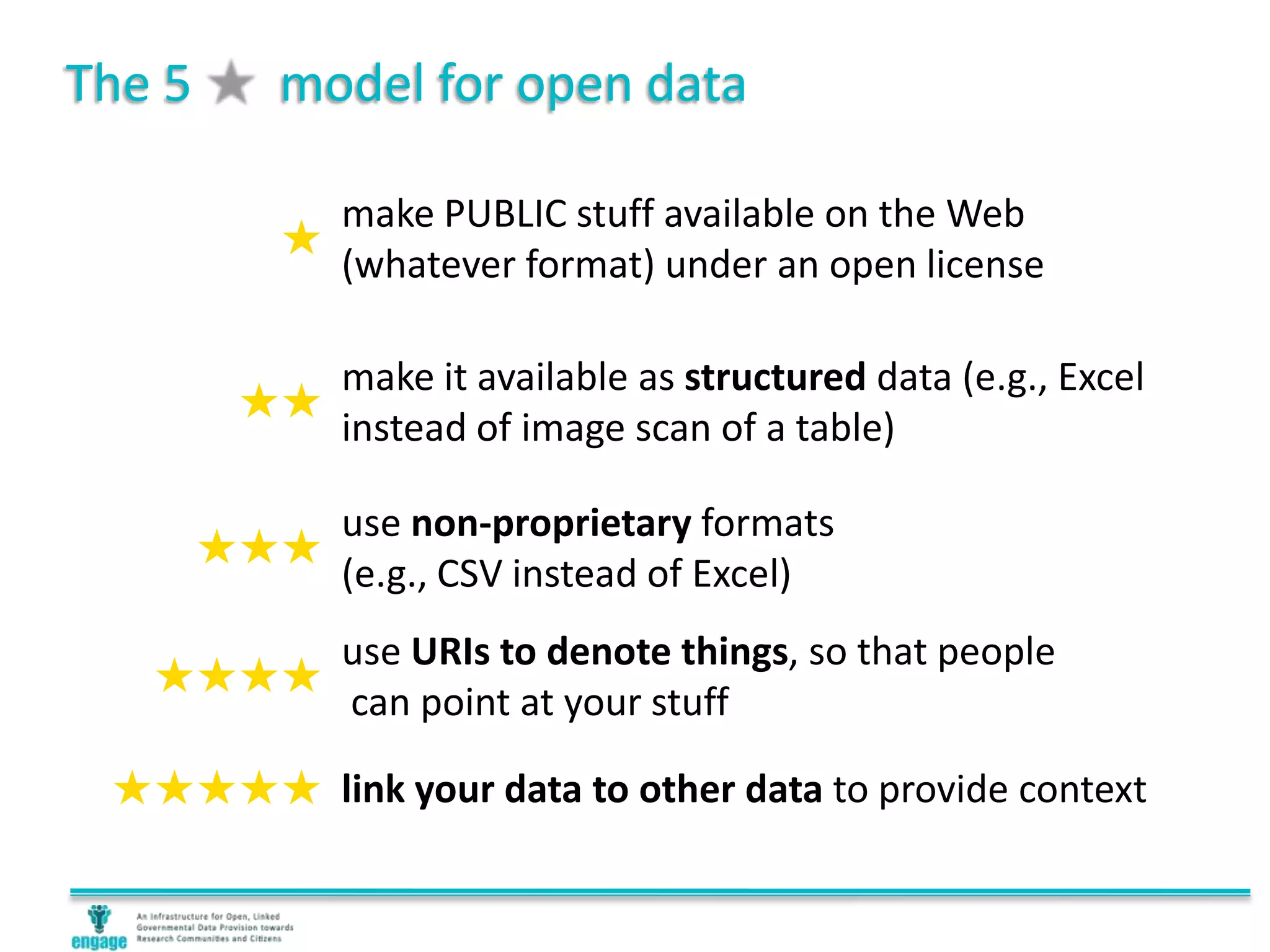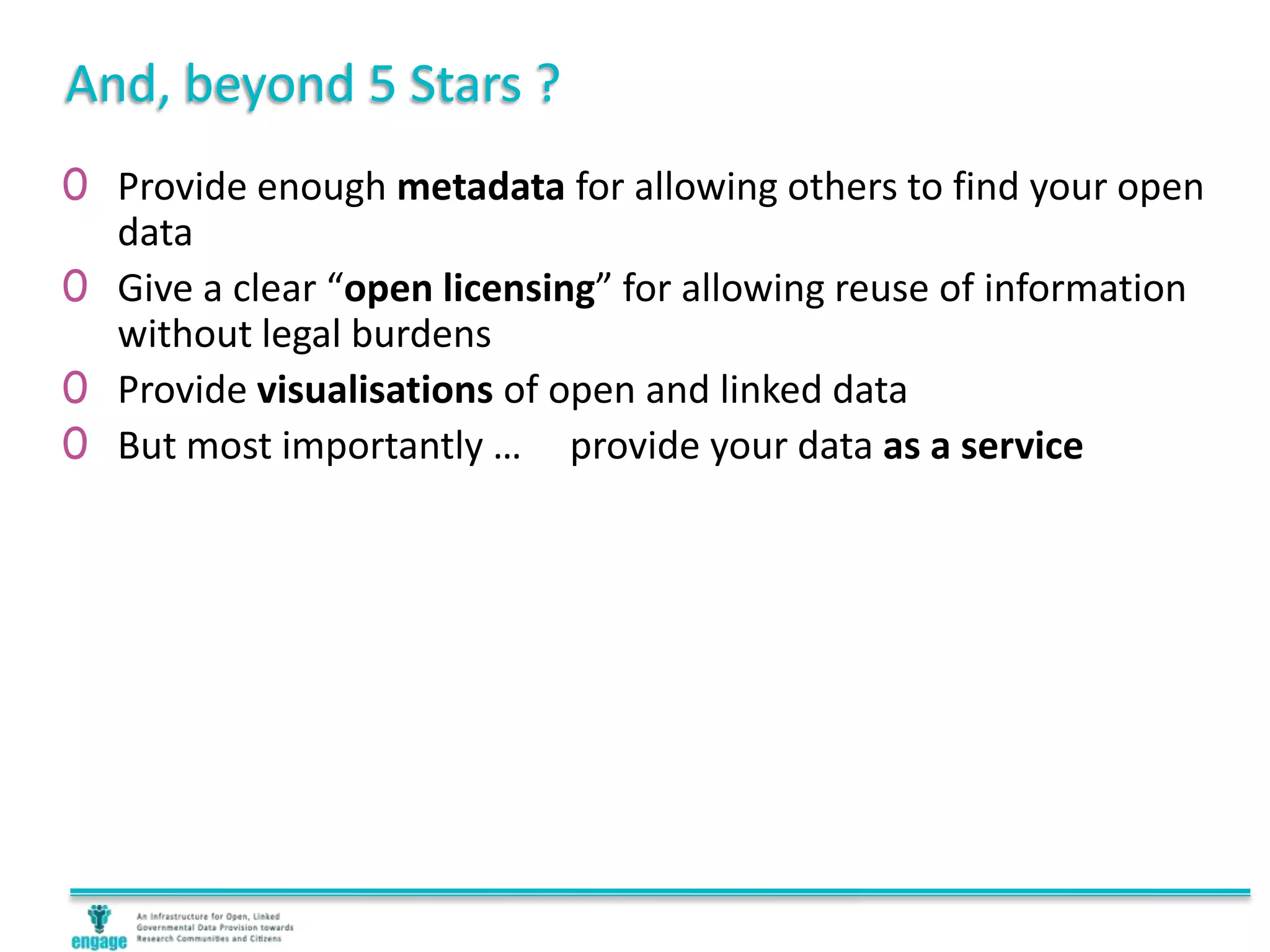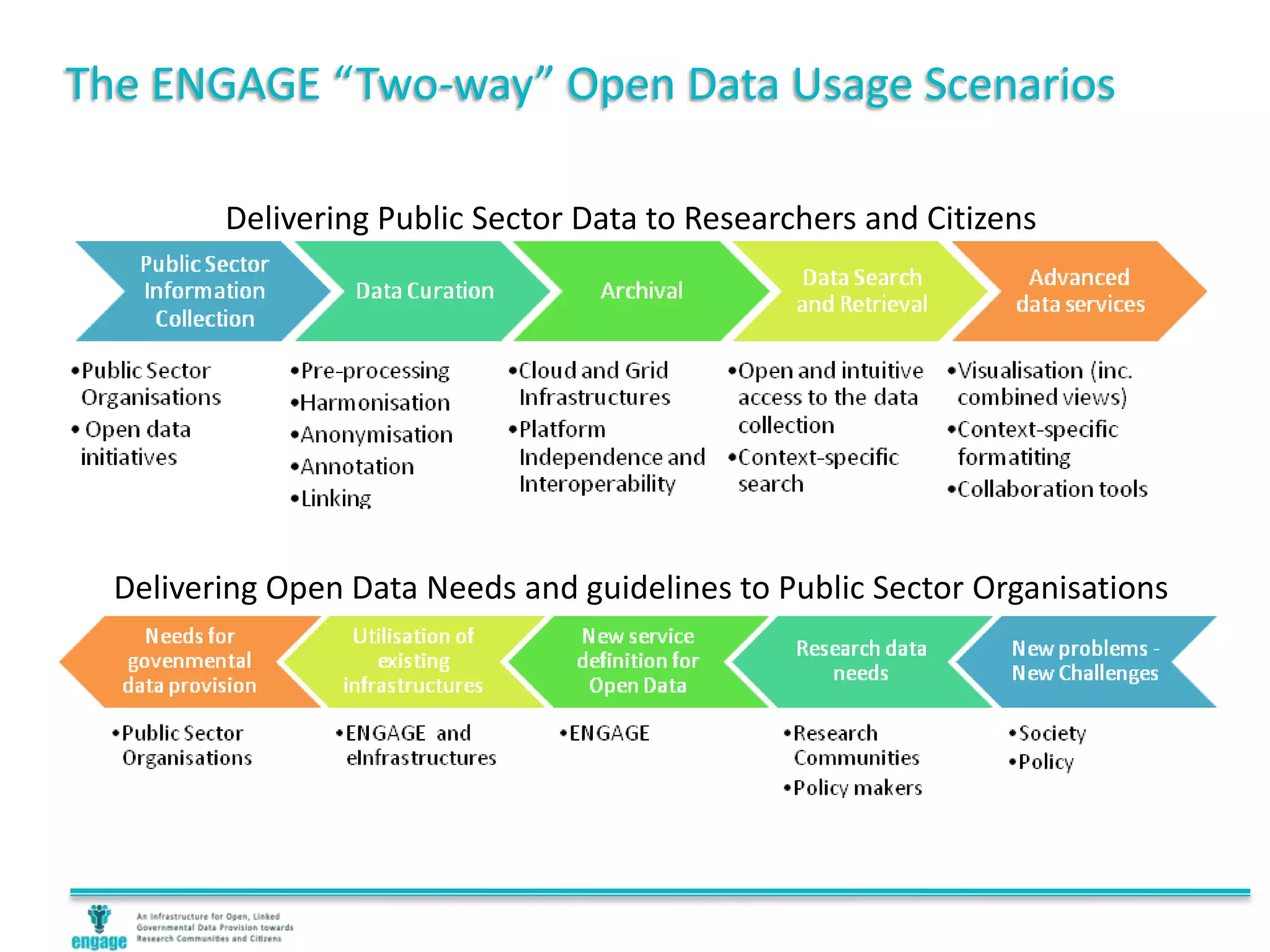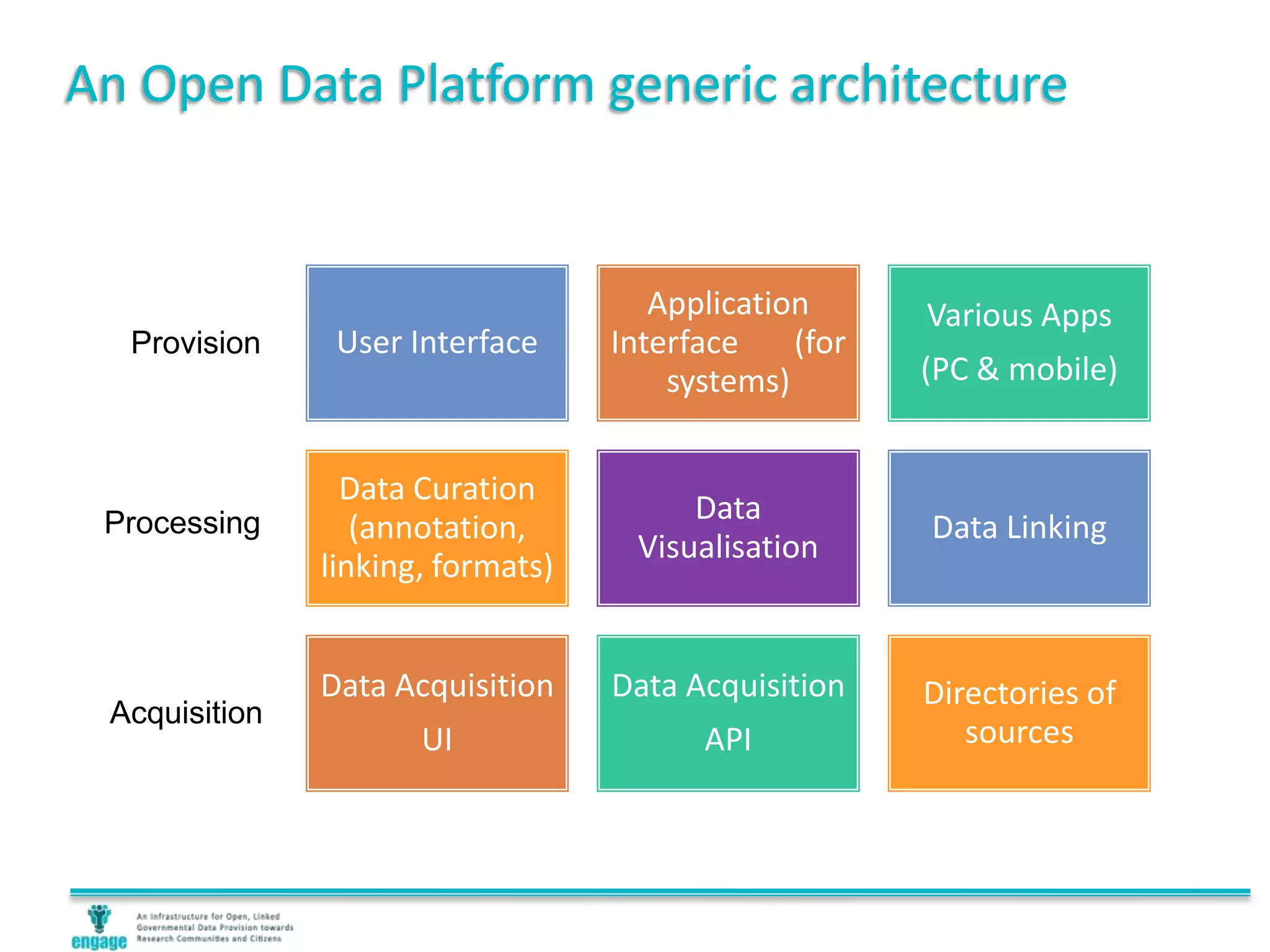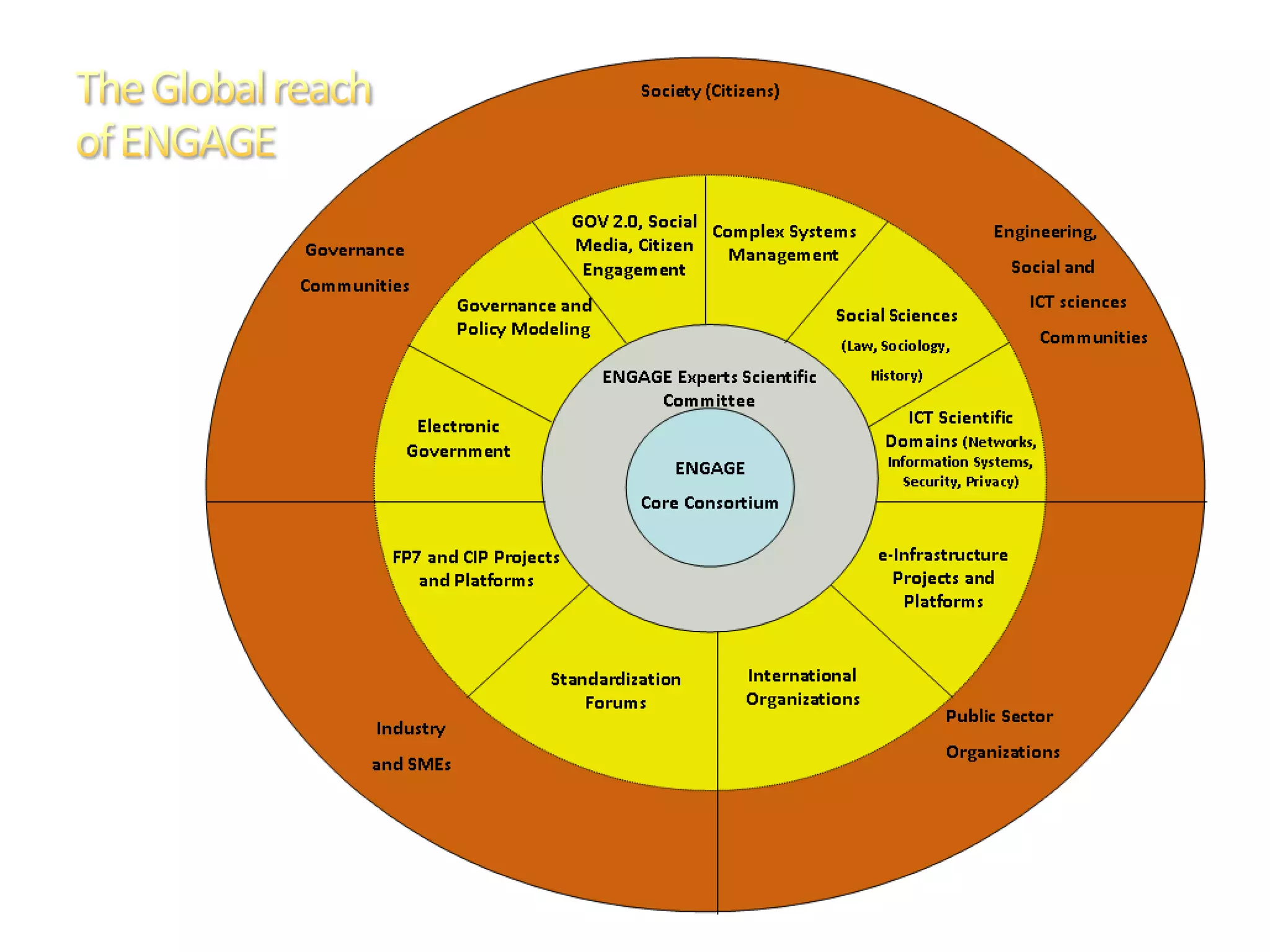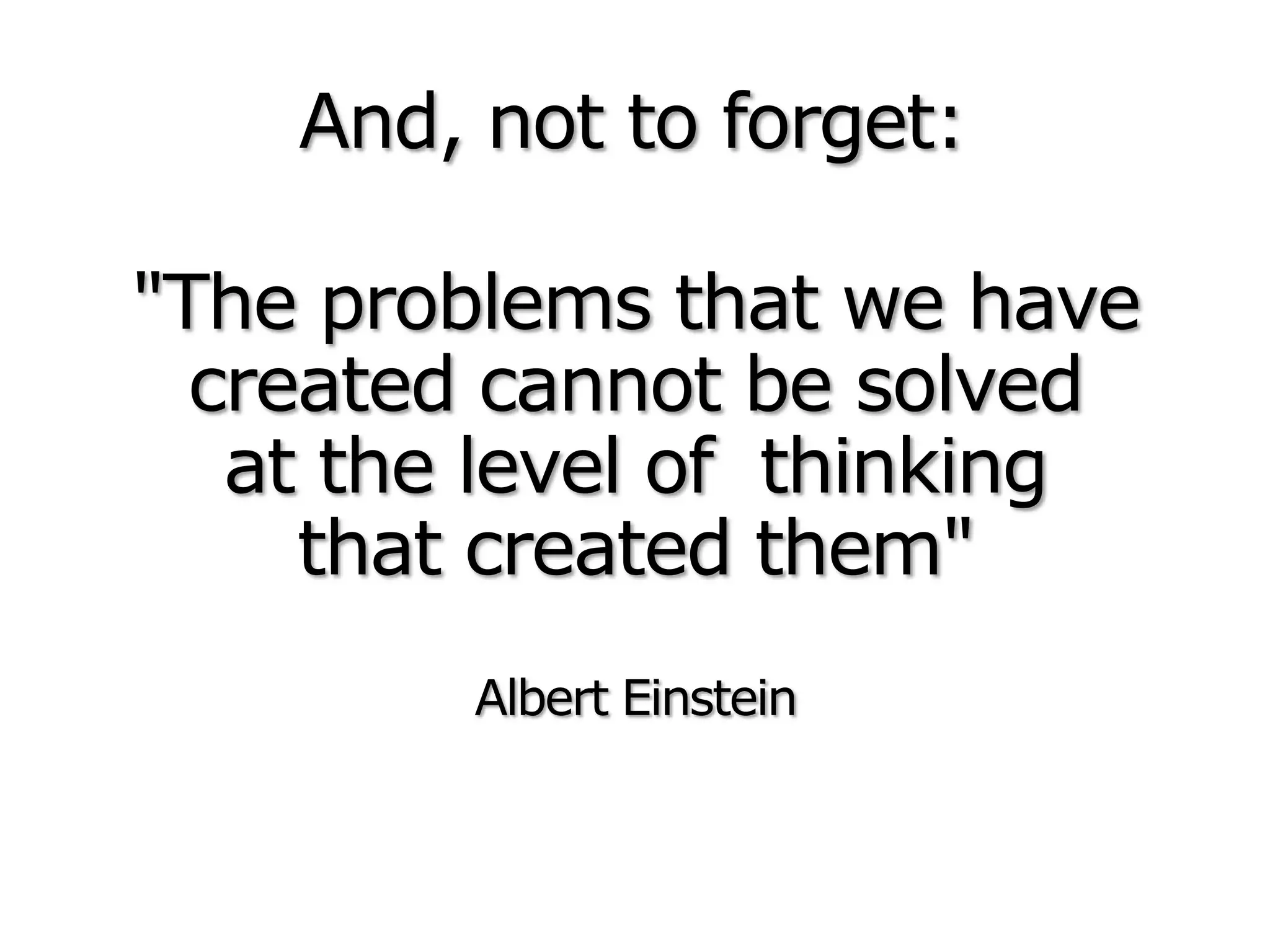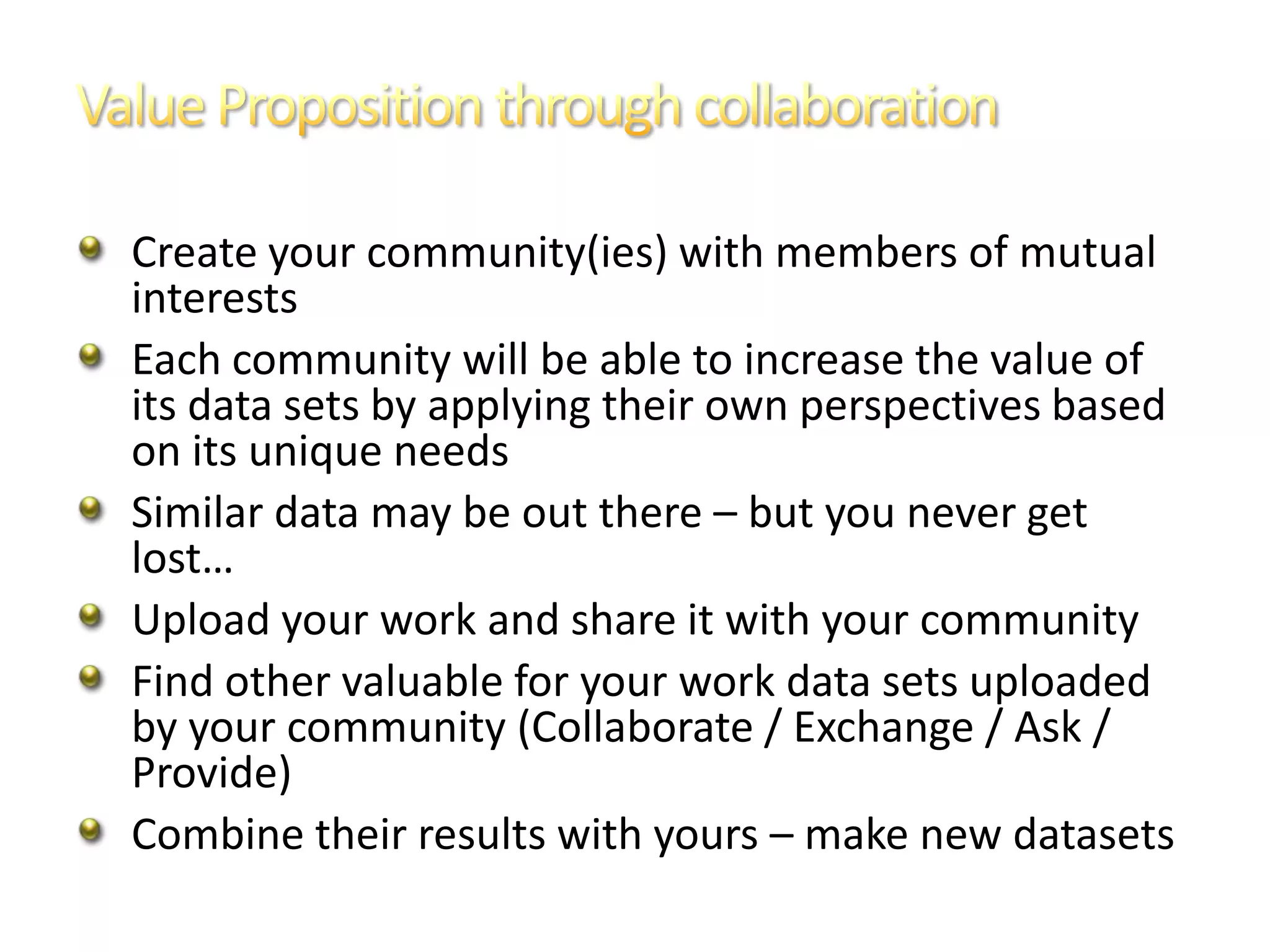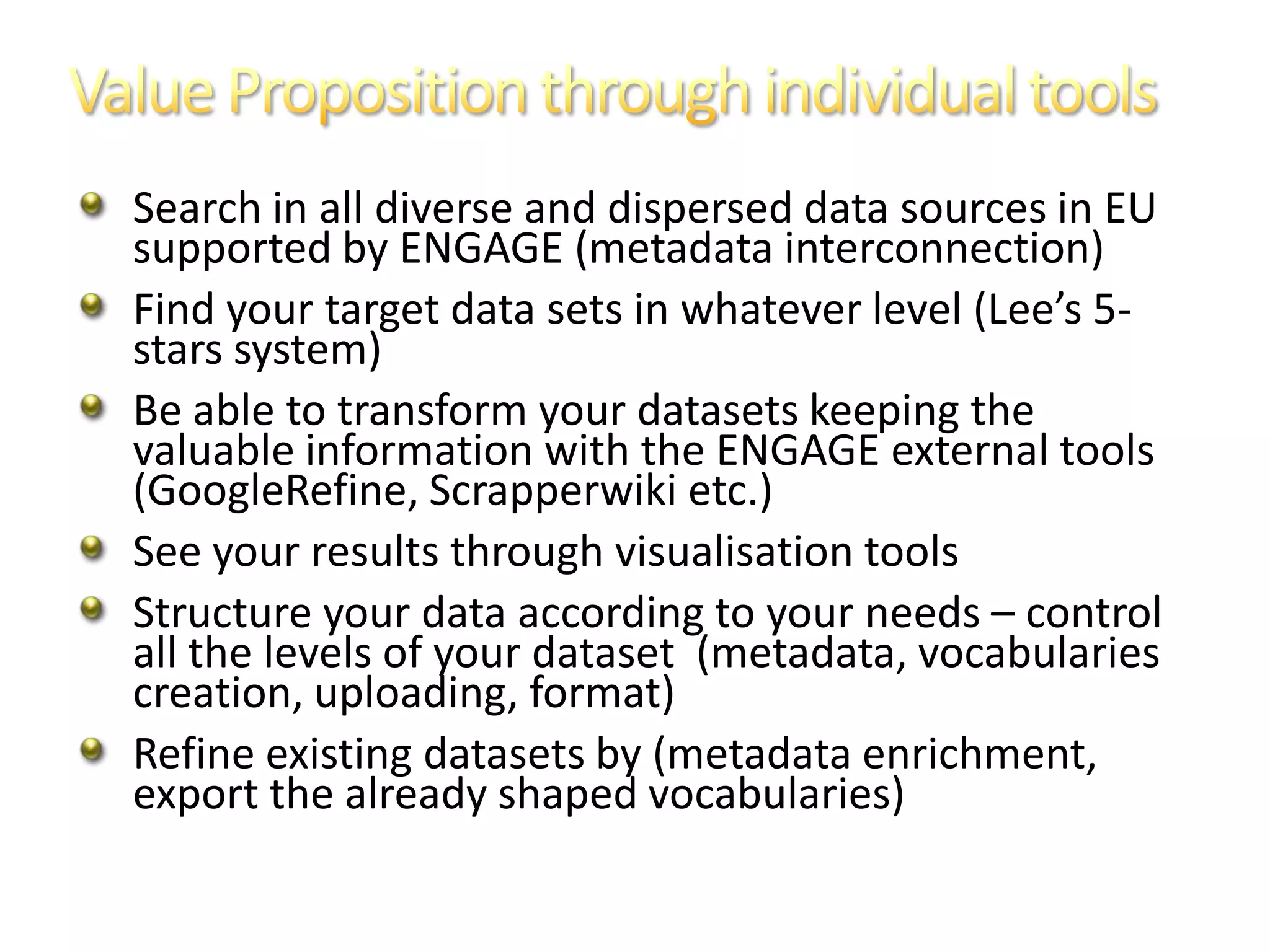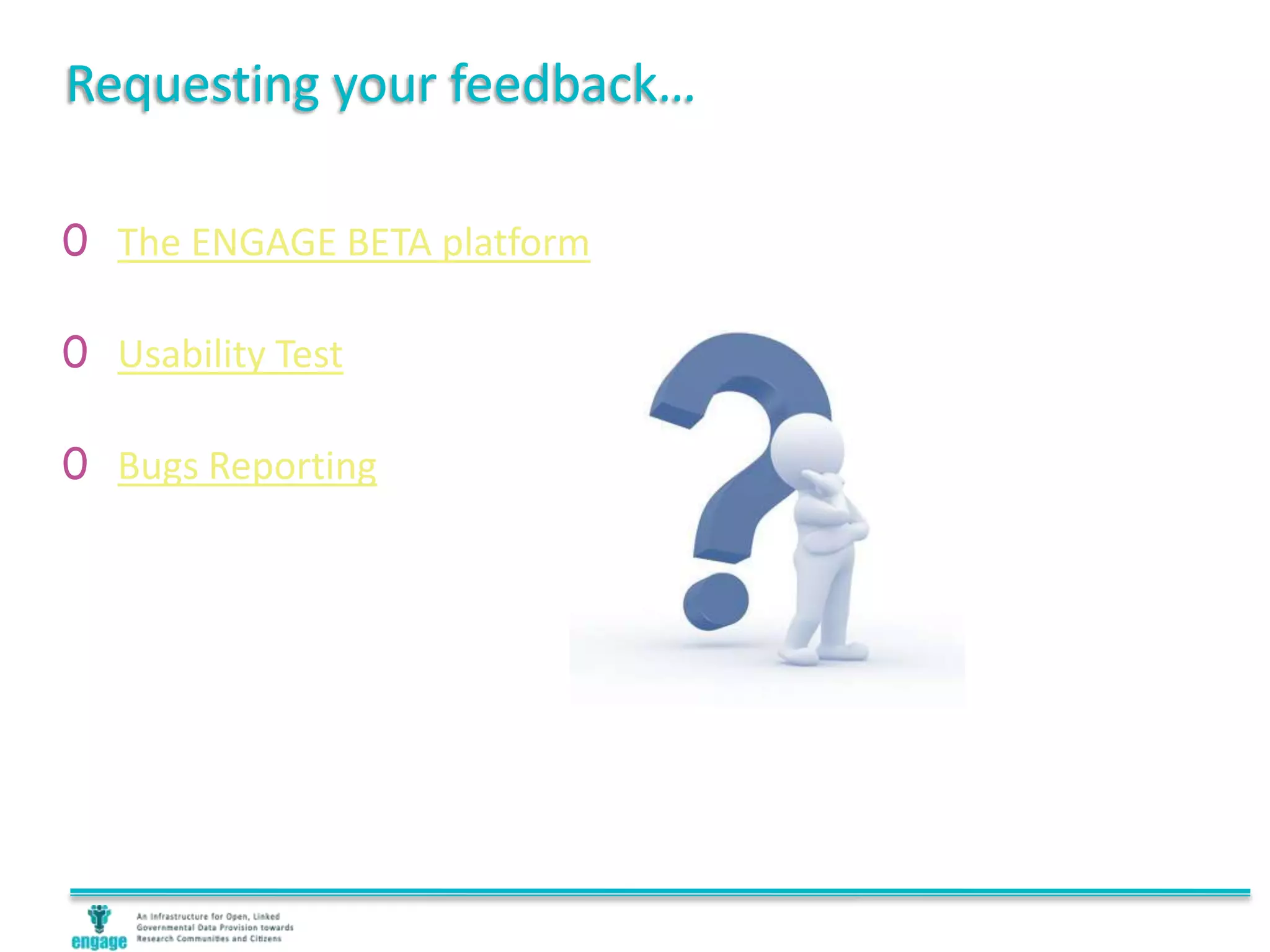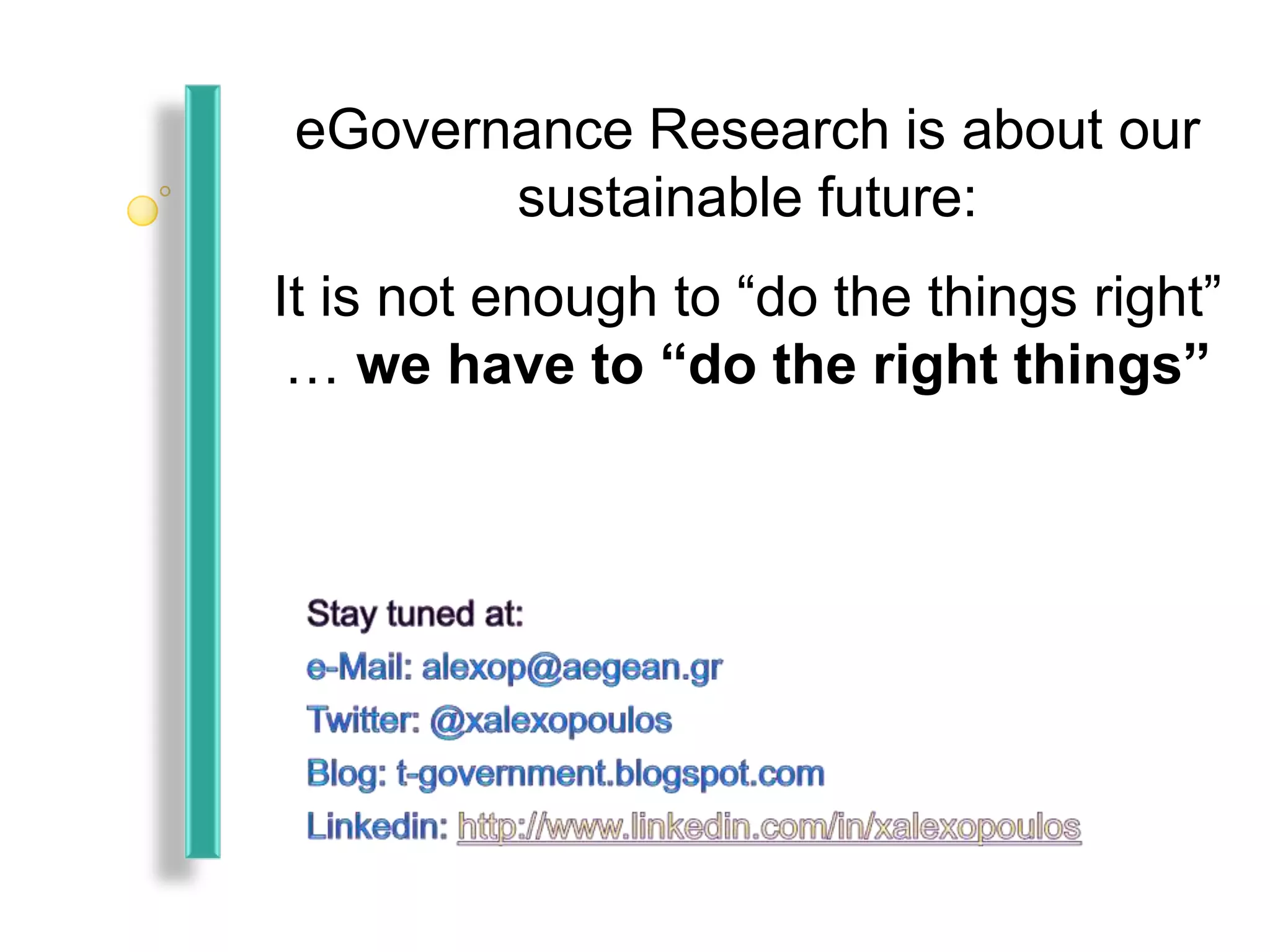The document discusses open public data and the ENGAGE open collaborative platform. It defines open data and explains its importance in supporting transparency, democratic processes, and new services/startups. Examples of open data platforms are provided. The document outlines the ENGAGE platform's components, including communities, data curation tools, visualization tools, and acquisition APIs. It discusses using the platform to deliver open data to researchers and citizens, and to provide feedback on usability and bugs. The overall goal is to organize public knowledge through open data collaboration.
